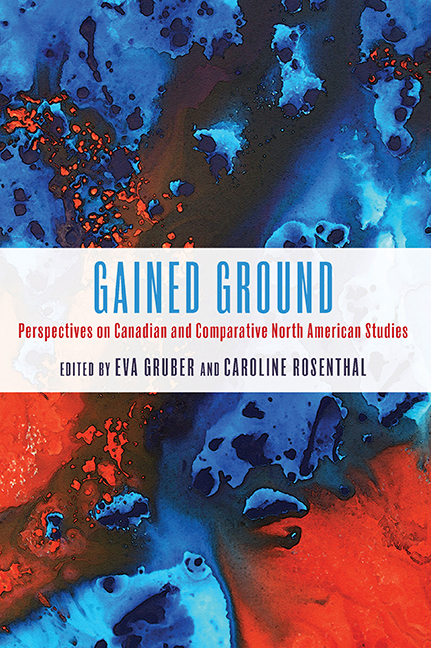Book contents
- Frontmatter
- Contents
- Preface and Acknowledgments
- Introduction
- Part I The Genesis of Canadian and Comparative North American Studies
- Mapping North America: Comparative North American Literature and Its Contexts
- The Scottish Invention of Canadian Literature? John Buchan in Canada
- Part II Comparative North American Studies: Literary Case Studies
- Part III Comparative North American Studies beyond Print
- Part IV Coda: Reingard Nischik and Transatlantic Canadian Criticism
- Index
The Scottish Invention of Canadian Literature? John Buchan in Canada
from Part I - The Genesis of Canadian and Comparative North American Studies
Published online by Cambridge University Press: 26 October 2019
- Frontmatter
- Contents
- Preface and Acknowledgments
- Introduction
- Part I The Genesis of Canadian and Comparative North American Studies
- Mapping North America: Comparative North American Literature and Its Contexts
- The Scottish Invention of Canadian Literature? John Buchan in Canada
- Part II Comparative North American Studies: Literary Case Studies
- Part III Comparative North American Studies beyond Print
- Part IV Coda: Reingard Nischik and Transatlantic Canadian Criticism
- Index
Summary
IN 1935, WHEN JOHN BUCHAN (1875–1940) was appointed Governor General of Canada, he had already been a prolific author for forty years. He had worked as a journalist and war correspondent, and written histories, biographies, and of course the thrillers for which he is still known today; in fact, just prior to his departure for Canada, he had attended the premiere of Alfred Hitchcock's adaptation of his most famous novel, The Thirty-Nine Steps. However, Buchan could also look back upon a distinguished career as an administrator and politician: he had spent two years on the staff of the High Commissioner for South Africa, he had coordinated British First World War propaganda, he had been Deputy- Chairman of Reuter's, and he had served as Member of Parliament for the Scottish Universities. As Governor General, he could draw upon skills acquired in these (and numerous other) roles, most strikingly when handling Canadian, American, and British media so as to maximize public interest in his extensive journeys across the length and width of Canada, or in the charities and other organizations which he patronized.
In the following, it will, of course, not be claimed that Buchan “really” invented Canadian literature, certainly not in the sense in which this claim has been made for English literature, or rather English Literature, in the volume to which the title of this essay alludes, Robert Crawford's The Scottish Invention of English Literature (1998). In Crawford's volume, contributors suggest that English Literature was initially taught as a subject in eighteenth-century Scottish universities, and was then exported to newly independent America, to British colonies such as Canada, India, and Australia, and ultimately to England itself. It will, however, be argued that Buchan did promote the concept of Canadian literature as a distinct tradition with unique features, and, perhaps more controversially, that he contributed to this tradition himself. To this purpose, the essay will first sketch Buchan's engagement with three quintessentially Canadian issues, multiculturalism, the North, and, indeed, “CanLit.” In a second step, it will be shown how Buchan fictionalized these issues in his last novel, Sick Heart River (published posthumously in 1941, cited here from the 2007 edition).
- Type
- Chapter
- Information
- Gained GroundPerspectives on Canadian and Comparative North American Studies, pp. 41 - 54Publisher: Boydell & BrewerPrint publication year: 2018



